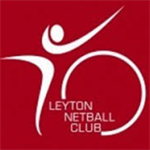Leyton Netball Club - Safeguarding and Child Protection Policy
At Leyton Netball Club, we are committed to creating a safe, supportive, and enjoyable environment for all participants, from children as young as 5 years old to adults. Our priority is to ensure the safety and well-being of everyone involved in netball, regardless of their age or ability. Safeguarding is at the heart of everything we do, and we take all concerns about abuse or poor practice seriously.
Netball is an incredible sport that brings people together and builds confidence, teamwork, and physical fitness. However, it is important that participants, coaches, volunteers, and parents all play their part in ensuring a safe and supportive environment for all involved.
Leyton Netball Club recognises its responsibility to safeguard children and vulnerable adults from harm and will take all necessary steps to prevent abuse and respond effectively to any concerns that may arise.
Who Are We?
Leyton Netball Club is a community-based netball club that caters to a wide range of ages and abilities, from children as young as 5 years old through to adults. We aim to provide an inclusive environment where everyone, regardless of background or experience, can enjoy the game of netball. We run coaching sessions, competitive teams, and social activities with a focus on fun, personal development, and well-being.
Our club is built on a foundation of inclusivity, safety, and respect. We are committed to providing an environment where players, coaches, and volunteers can thrive, while ensuring the highest standards of safeguarding are upheld at all times.
Policy Statement
Leyton Netball Club acknowledges the duty of care to safeguard and promote the welfare of all individuals involved in our activities, particularly children and vulnerable adults. We are committed to ensuring safeguarding practices reflect statutory responsibilities, government guidance, and comply with best practice requirements.
We are also committed to promoting an inclusive, respectful, and safe environment for all participants in netball, regardless of age, race, gender, ability, or sexual orientation. We aim to ensure that all participants can experience the full benefits of netball, with their safety and well-being at the forefront of everything we do.
Principles
Leyton Netball Club operates with the following safeguarding principles:
- The welfare of the individual is paramount. All participants, regardless of age, gender, race, or background, have the right to be safeguarded from harm.
- Children and vulnerable adults have the right to protection from all forms of abuse. We aim to promote a positive culture of care where safeguarding is everyone's responsibility.
- Best interests of children and adults involved in netball. All activities and coaching sessions will be structured to prioritize the well-being and safety of the participants.
- Recognising the duty to prevent abuse. We take proactive measures in recruitment, training, and education to ensure that safeguarding is at the forefront of our work.
Organisational Responsibilities
As part of our safeguarding policy, Leyton Netball Club will:
- Comply with safeguarding laws and regulations, including the Children Act 1989, Children Act 2004, The Safeguarding Vulnerable Groups Act 2006, and Working Together to Safeguard Children (2018).
- Promote and prioritise the safety and wellbeing of children, young people, and vulnerable adults.
- Ensure all staff and volunteers understand their roles and responsibilities regarding safeguarding and are provided with appropriate training and support to carry out their duties.
- Implement a robust recruitment process to ensure that all coaches, volunteers, and staff members undergo appropriate background checks (DBS) and reference checks before working with children and vulnerable adults.
- Ensure confidentiality regarding any safeguarding matters, with records of concerns and actions taken being securely stored.
- Provide clear guidance and procedures for handling concerns about abuse, ensuring that appropriate action is taken when a concern arises.
- Establish clear communication with external agencies such as local authorities and the police when needed to safeguard the welfare of any individual.
The policy and procedures will be promoted throughout Leyton Netball Club, and all staff, volunteers, and participants must comply with them. Breaches of policy may result in disciplinary action, including possible dismissal from the club.
Safeguarding Lead and Designated Safeguarding Lead (DDSL)
Leyton Netball Club’s designated Safeguarding Lead (DSL) is Allison Imbert, and the Deputy Designated Safeguarding Lead (DDSL) is Sharon Smith.
Role of the Safeguarding Lead (DSL):
The role of the Safeguarding Lead (DSL) is to:
- Take responsibility for safeguarding within the club, ensuring that the club complies with safeguarding regulations and best practices.
- Act as the first point of contact for all safeguarding concerns, allegations, or disclosures.
- Oversee the training and development of staff and volunteers on safeguarding matters.
- Maintain clear records of any concerns or actions taken in response to safeguarding issues.
- Communicate and cooperate with external agencies when necessary.
- Ensure that all incidents are dealt with in accordance with the club’s safeguarding policy.
Role of the Deputy Safeguarding Lead (DDSL):
The DDSL assists the Safeguarding Lead in carrying out the responsibilities listed above. In the absence of the DSL, the DDSL will take on the role of safeguarding lead.
Roles and Responsibilities of Staff and Volunteers
All staff, coaches, and volunteers involved with Leyton Netball Club have a responsibility to:
- Ensure the safety and well-being of all participants by adopting the principles and procedures outlined in this safeguarding policy.
- Actively promote a safe and respectful environment, ensuring participants understand their rights, the importance of safeguarding, and the standards of behaviour expected.
- Report any concerns of abuse or poor practice immediately to the DSL or DDSL, using the incident reporting procedure. This includes concerns raised by children, parents, or others within the club.
- Maintain professional boundaries and relationships with all participants, being mindful of appropriate conduct at all times.
- Attend safeguarding training to be equipped with the knowledge to identify and act upon safeguarding concerns.
Recognising Abuse and Neglect
Abuse can happen to children, young people, and vulnerable adults. It is important that everyone involved in Leyton Netball Club understands the different forms of abuse, which include:
- Physical Abuse: The infliction of physical harm to a person.
- Sexual Abuse: Any form of sexual activity or behaviour directed at a person without consent.
- Emotional or Psychological Abuse: Actions or behaviours that cause emotional harm or distress to a person.
- Neglect: The failure to provide basic care, food, shelter, medical care, and emotional support.
- Bullying and Harassment: Repeated, intentional harm caused to someone, which can be physical, emotional, or verbal.
Reporting a Safeguarding Concern
If there are concerns about a child or vulnerable adult’s safety, any staff member or volunteer must:
- Report the concern immediately to the designated Safeguarding Lead (DSL) or Deputy Designated Safeguarding Lead (DDSL).
- Document any concerns using the incident reporting form and ensure that it is submitted within 24 hours of the concern being raised.
- If the DSL or DDSL is unavailable, contact local authorities or emergency services.
Contact Details for Safeguarding Authorities:
- Emergency Duty Team (Outside office hours): Local Police (101)
- Local Authority Designated Officer (LADO): 020 8708 5350 / LADO@redbridge.gov.uk
- NSPCC Helpline: 0808 800 5000
Volunteer and Staff Recruitment
Leyton Netball Club follows a rigorous recruitment process to ensure that anyone working with children or vulnerable adults has been properly vetted. This includes:
- Enhanced DBS checks for all coaches, volunteers, and anyone else involved in direct contact with children or vulnerable adults.
- Two references from previous employers or relevant parties who can speak to the individual’s suitability to work with children.
- Ongoing monitoring of volunteers and staff to ensure continued safeguarding adherence.
Conclusion
Leyton Netball Club is dedicated to maintaining a safe, respectful, and enjoyable environment for all participants, regardless of age or ability. Safeguarding is a shared responsibility, and we all have a part to play in protecting children and vulnerable adults from harm. By adhering to the safeguarding policies, promoting best practice, and responding appropriately to concerns, we can ensure the safety and well-being of everyone involved in netball at Leyton Netball Club.



.JPG?v=638806678784325239)




.JPG?v=638806678789181193)



